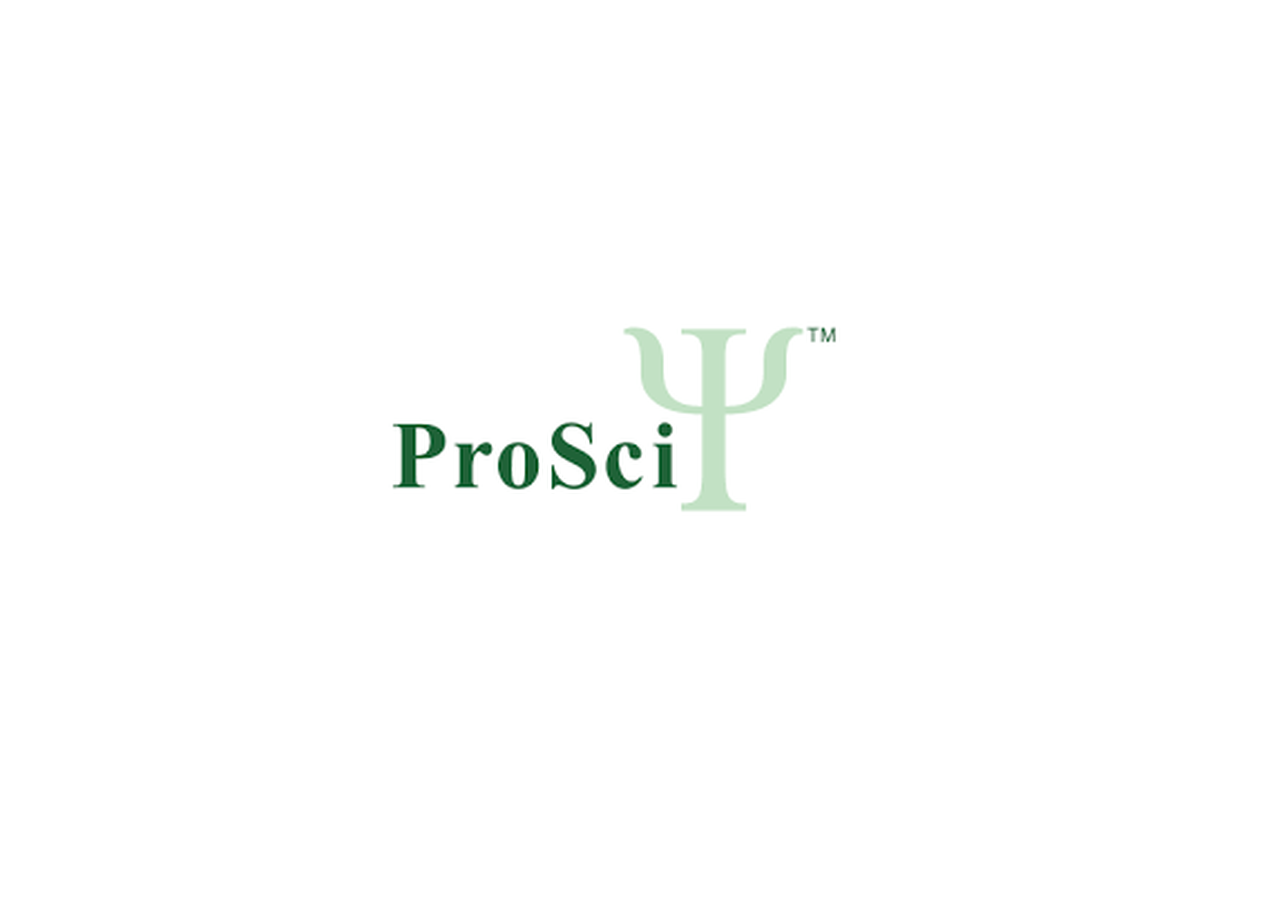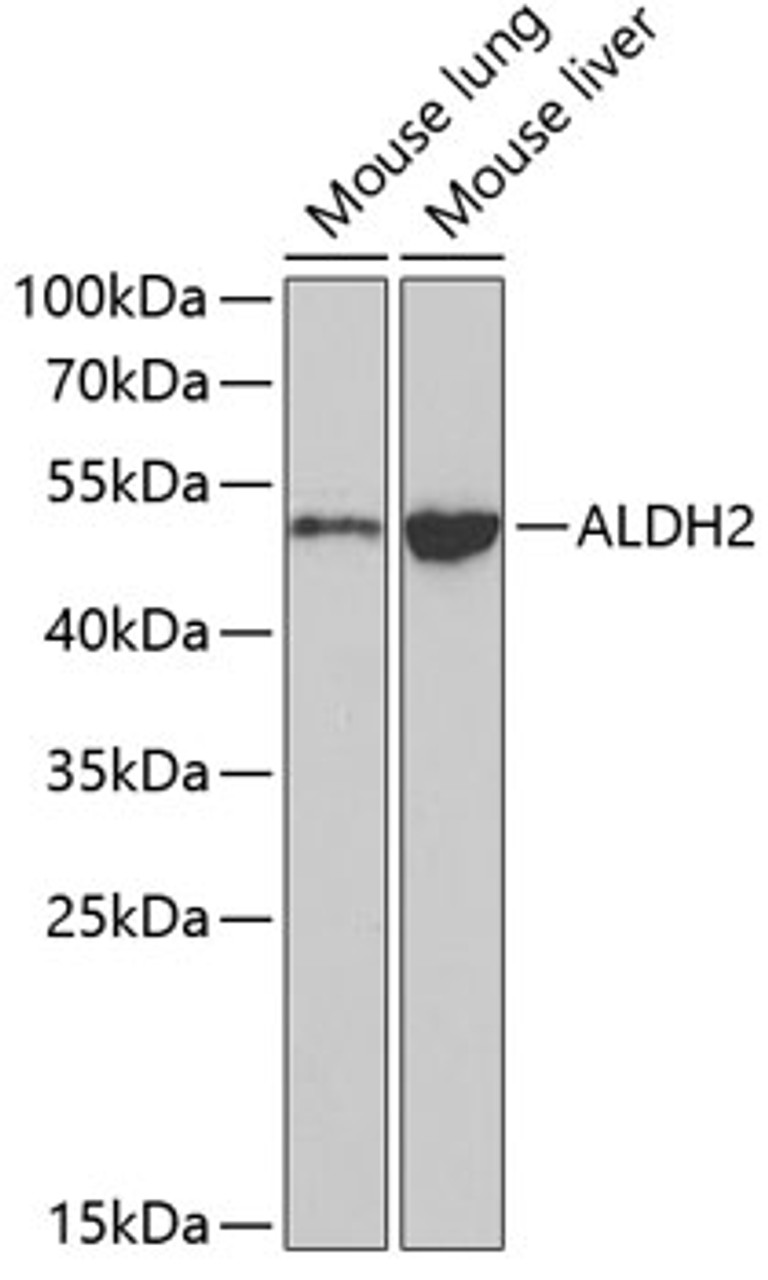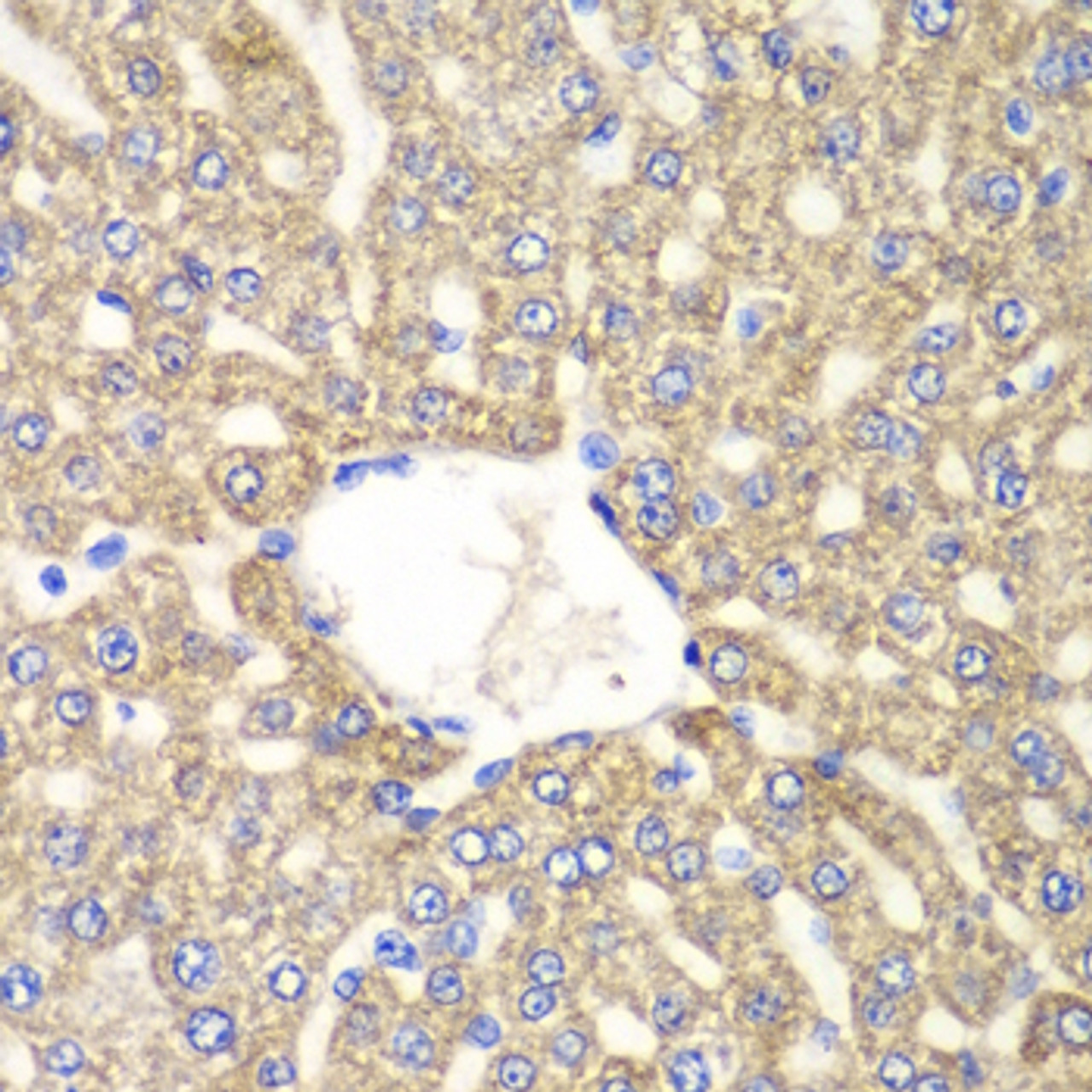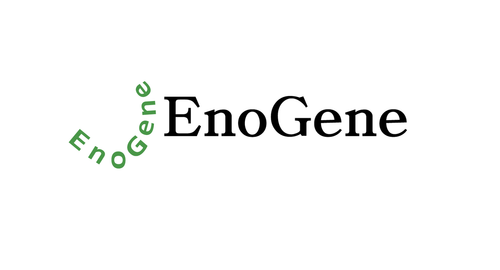Product Description
ALDH2 Antibody | 14-336 | ProSci
Host: Rabbit
Reactivity: Human, Mouse, Rat
Homology: N/A
Immunogen: Recombinant fusion protein containing a sequence corresponding to amino acids 1-380 of human ALDH2 (NP_000681.2) .
Research Area: Cancer, Signal Transduction
Tested Application: WB, IHC, IF
Application: WB: 1:500 - 1:2000
IHC: 1:50 - 1:200
IF: 1:50 - 1:200
Specificiy: N/A
Positive Control 1: Mouse lung
Positive Control 2: Mouse liver
Positive Control 3: N/A
Positive Control 4: N/A
Positive Control 5: N/A
Positive Control 6: N/A
Molecular Weight: Observed: 54kDa
Validation: N/A
Isoform: N/A
Purification: Affinity purification
Clonality: Polyclonal
Clone: N/A
Isotype: IgG
Conjugate: Unconjugated
Physical State: Liquid
Buffer: PBS with 0.02% sodium azide, 50% glycerol, pH7.3.
Concentration: N/A
Storage Condition: Store at -20˚C. Avoid freeze / thaw cycles.
Alternate Name: ALDH2, nucleus-encoded mitochondrial aldehyde dehydrogenase 2, mitochondrial aldehyde dehydrogenase 2, MGC1806, liver mitochondrial ALDH, ALDM, ALDHI, ALDH-E2, ALDH class 2, aldehyde dehydrogenase 2 family (mitochondrial) , acetaldehyde dehydrogenase 2
User Note: Optimal dilutions for each application to be determined by the researcher.
BACKGROUND: This protein belongs to the aldehyde dehydrogenase family of proteins. Aldehyde dehydrogenase is the second enzyme of the major oxidative pathway of alcohol metabolism. Two major liver isoforms of aldehyde dehydrogenase, cytosolic and mitochondrial, can be distinguished by their electrophoretic mobilities, kinetic properties, and subcellular localizations. Most Caucasians have two major isozymes, while approximately 50% of East Asians have the cytosolic isozyme but not the mitochondrial isozyme. A remarkably higher frequency of acute alcohol intoxication among East Asians than among Caucasians could be related to the absence of a catalytically active form of the mitochondrial isozyme. The increased exposure to acetaldehyde in individuals with the catalytically inactive form may also confer greater susceptibility to many types of cancer. This gene encodes a mitochondrial isoform, which has a low Km for acetaldehydes, and is localized in mitochondrial matrix. Alternative splicing results in multiple transcript variants encoding distinct isoforms.
 Euro
Euro
 USD
USD
 British Pound
British Pound
 NULL
NULL















![ALDH2 Antibody [APG01744G] ALDH2 Antibody [APG01744G]](https://cdn11.bigcommerce.com/s-452hpg8iuh/images/stencil/500x659/products/863547/1155614/logo__92149.1659788186__99688.1659859800.png?c=2)
